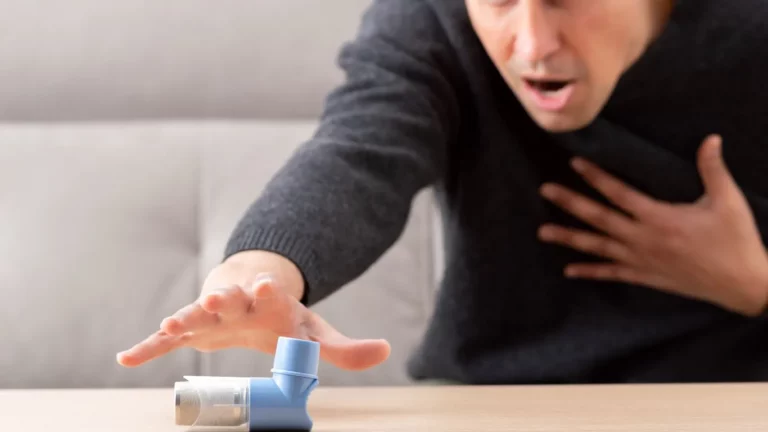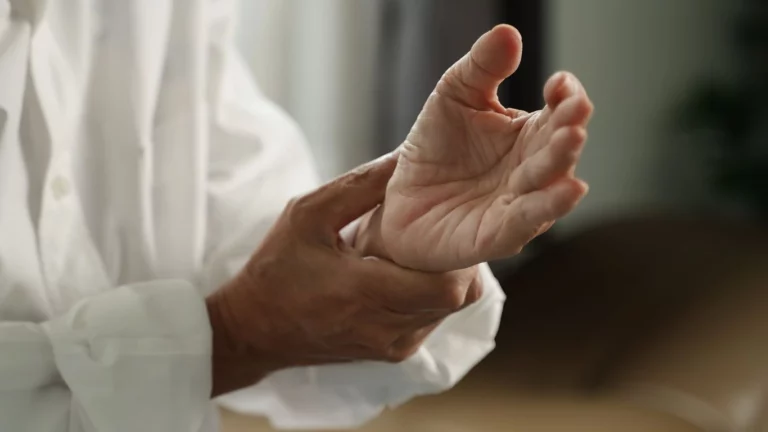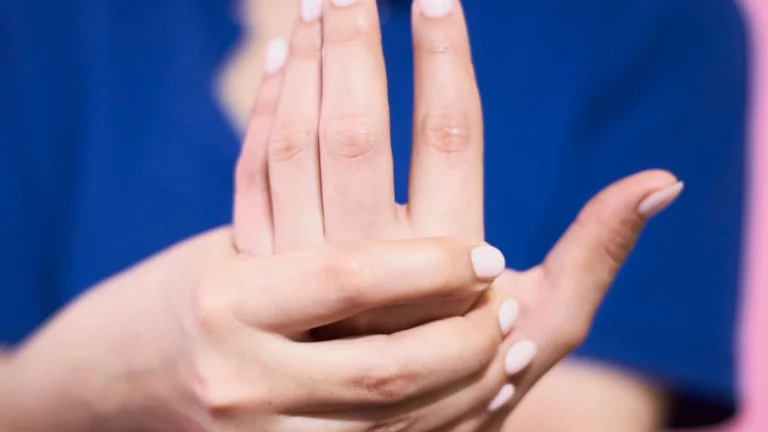Powerful Tips to Beat GERD and Mouth Breathing at Night for Better Sleep
Let’s talk about something that comes up a lot in the clinic but doesn’t always get the attention it deserves: GERD and mouth breathing at night. As someone who works hands-on with patients dealing with gastroesophageal reflux disease (GERD), I’ve seen firsthand how this condition can sneak into unexpected corners of your health — especially your nighttime breathing habits. If you’re waking up with a dry mouth, sore throat, or that annoying acidic taste, it’s not just in your head. There might be a hidden connection that most people — and sometimes even doctors — overlook.
What is GERD, and Why Is It Worse at Night?

GERD, or gastroesophageal reflux disease, happens when stomach acid regularly flows back up into the esophagus. Trust me, I’ve seen patients come in convinced it’s just “heartburn” until they realize how frequently it’s interfering with their sleep, mood, and even dental health. It gets worse when lying down because gravity no longer helps keep stomach acid where it belongs — in your stomach. Instead, it slides up, irritating the esophagus and sometimes creeping up into the mouth and sinuses.
Why the Nighttime Struggles Hit Harder
When you lie flat, it’s easier for acid to travel up. And if you’re a mouth breather at night — whether because of nasal congestion, allergies, or just habit — things can get even worse. Mouth breathing tends to dry out the protective saliva in your mouth. And less saliva means less natural neutralization of that harsh stomach acid.
I had a patient, let’s call her Maria, who came in complaining about a sore throat every morning. She’d tried allergy meds, nasal sprays, and even swapped out her pillows, thinking dust mites were the culprit. Turns out, the real troublemaker was a combination of GERD and mouth breathing at night. Once we addressed both, her symptoms drastically improved. This kind of stuff happens more often than you’d think.
How GERD and Mouth Breathing Affect Each Other

The relationship between GERD and mouth breathing is a bit of a vicious cycle. Here’s how:
- GERD causes acid reflux to reach the throat and mouth, irritating tissues.
- That irritation leads to nasal congestion or postnasal drip.
- You start breathing through your mouth at night due to blocked nasal passages.
- Mouth breathing dries out the throat and mouth, making GERD symptoms feel even worse.
This cycle keeps spinning unless both issues are addressed. As a medical assistant, I’ve seen that focusing on just one won’t cut it. You have to break the loop. Otherwise, people keep coming back thinking it’s allergies or seasonal stuff when it’s really reflux creeping in while they sleep.
Signs You Might Be Mouth Breathing at Night Due to GERD
- Dry mouth or sore throat in the morning
- Chronic bad breath (halitosis)
- Hoarseness or voice changes
- Waking up feeling like you’re choking or coughing
- Increased dental issues like cavities or gum inflammation
These might seem like minor annoyances, but they’re red flags. GERD isn’t just about heartburn. It can be sneaky — causing silent reflux that you might only feel as a morning cough or bitter taste.
Why Addressing Both GERD and Mouth Breathing Matters

Working in a GI clinic, I’ve seen patients improve dramatically once they start treating GERD more holistically. That means not only popping an antacid, but also looking at sleep posture, nasal breathing, and lifestyle habits. I usually tell folks to think of it as tuning up a whole system, not just fixing a leak.
It’s not just about comfort either — long-term GERD and chronic mouth breathing can lead to serious issues like Barrett’s esophagus, dental erosion, and disrupted sleep quality. That’s why catching this combo early can save you from a lot of long-term trouble. And hey, your mornings might start feeling a whole lot better too.
Common Triggers That Worsen GERD and Mouth Breathing at Night

One thing I’ve learned working closely with GI patients is that triggers can vary wildly — but some culprits pop up more than others. And when you’re dealing with both GERD and mouth breathing at night, avoiding those triggers becomes even more important. It’s not just about spicy food and coffee, although those are classic offenders. It’s also how and when you eat that makes a big difference.
Here are some of the most common triggers I talk to patients about:
- Late-night meals: Eating right before bed gives your stomach acid a VIP pass to creep up your esophagus.
- Fatty or fried foods: These slow digestion and increase the likelihood of reflux.
- Alcohol and caffeine: These relax the lower esophageal sphincter — basically the “door” that keeps acid in your stomach.
- Chocolate and peppermint: Surprisingly common triggers that many folks don’t realize can worsen symptoms.
And get this — even something like carbonated water can contribute. I had a patient who switched from soda to sparkling water thinking it was a healthier option. It was, but the bubbles still aggravated her GERD. Once we made that small tweak, her symptoms at night settled down quite a bit.
What You Can Do to Break the GERD and Mouth Breathing Cycle

Okay, now let’s talk real-life solutions. Because as much as it’s helpful to know what’s going wrong, what you really want is to sleep through the night without that burning feeling in your chest or waking up gasping for air. I always remind my patients that small changes can lead to big improvements — and consistency is key.
Simple Lifestyle Tweaks That Actually Help
- Elevate your head at night: A wedge pillow or adjustable bed can help keep acid where it belongs. Even 6-8 inches makes a difference.
- Nasal breathing training: Try mouth taping (yes, really!) or nasal strips to encourage breathing through your nose while sleeping.
- Avoid food 2-3 hours before bed: Give your digestive system time to wind down before you lie down.
- Hydrate smartly: Water is your friend — but not right before bedtime if it leads to nighttime reflux.
- Consider a humidifier: Especially if you live in a dry climate. It helps ease the dryness caused by mouth breathing.
One of my regular patients, James, used to think he was just dealing with allergies. Once we worked through a few of these tweaks — nasal rinses during the day, eating dinner earlier, switching his pillow setup — his nighttime symptoms were practically gone. He couldn’t believe how much better he was sleeping and even noticed less acid erosion on his teeth at his next dental visit.
When to Talk to a Doctor About GERD and Nighttime Mouth Breathing

Now, not everything can be fixed with lifestyle changes. There are times when it’s important to loop in a specialist. I always encourage patients to speak up if they’re experiencing:
- Frequent acid reflux (more than twice a week)
- Difficulty swallowing or feeling like food is getting stuck
- Chest pain unrelated to the heart
- Persistent cough, hoarseness, or that “lump in the throat” sensation
- Waking up coughing, choking, or gasping for air
These symptoms might indicate something more advanced like LPR (laryngopharyngeal reflux) or even obstructive sleep apnea — both of which often fly under the radar. If you’ve got both GERD and mouth breathing at night, it’s worth getting evaluated properly. Your PCP or a GI specialist can guide you through diagnostics like an endoscopy, pH monitoring, or sleep studies if needed.
Real Talk from the Clinic
Here’s something I always share with patients: Don’t ignore the “small” stuff. GERD isn’t just about heartburn, and mouth breathing isn’t just about snoring. Together, they can chip away at your sleep quality, oral health, and overall energy levels. Catching it early and managing it head-on really does make a difference.
And hey, I get it — implementing new habits can be a pain at first. But once you start seeing (and feeling) the results, it’s so worth it. Every time a patient comes back and tells me they’re sleeping better and waking up without that awful sour taste? That’s a win in my book.
Medical Treatments and When to Consider Them

After making lifestyle changes, some folks still find their symptoms stubborn. From my experience in the gastroenterology clinic, I can tell you that sometimes, medication or other medical interventions are necessary to get relief from GERD and mouth breathing at night.
Proton pump inhibitors (PPIs) and H2 blockers are the usual first-line medications we recommend. They work by reducing the amount of acid your stomach produces, which helps ease the irritation that causes reflux symptoms. Many patients notice a significant improvement in both daytime discomfort and nighttime issues after starting these meds.
That said, it’s important to use these medications under medical supervision, especially if you need them long term. Overuse can sometimes lead to other complications, so your doctor will want to tailor the treatment plan based on your symptoms and test results.
For those dealing with severe reflux or complications like Barrett’s esophagus, more advanced treatments might be discussed. These include endoscopic procedures or even surgery, but these are usually last resorts after trying all other options.
Addressing Mouth Breathing Medically
Mouth breathing can be a sign of underlying nasal issues such as chronic congestion, deviated septum, or sleep apnea. If you’ve tried nasal strips, humidifiers, and nasal rinses without success, it might be time to see an ENT specialist.
Sleep studies can be invaluable if you or your doctor suspect obstructive sleep apnea, which often goes hand in hand with GERD and can seriously disrupt your sleep quality. Treatments like CPAP machines, dental appliances, or surgery might be recommended depending on the diagnosis.
From my conversations with patients, those who address both reflux and breathing problems medically often report a huge boost in their overall well-being — better sleep, less fatigue, and fewer interruptions from coughing or choking at night.
The Role of Oral Health in GERD and Mouth Breathing

I can’t stress enough how much GERD and mouth breathing affect your oral health. Acid reflux can erode tooth enamel, cause cavities, and lead to gum irritation. Combine that with the dryness caused by mouth breathing, and you’ve got a recipe for oral problems.
Dental checkups become crucial if you have ongoing reflux symptoms. I’ve seen patients who had no idea their dental issues were tied to nighttime reflux until their dentist flagged acid damage. That’s why a team approach—GI specialist, ENT, and dentist—is often the best path forward.
Simple Oral Care Tips for GERD Patients
- Rinse your mouth with water after reflux episodes to wash away acid.
- Avoid brushing teeth immediately after reflux to prevent enamel damage; wait at least 30 minutes.
- Use fluoride toothpaste and consider mouth rinses designed to protect enamel.
- Stay hydrated to combat dry mouth, especially if you mouth breathe.
With a bit of care, you can protect your smile while managing your reflux symptoms. This holistic approach often makes a noticeable difference in comfort and confidence.
Final Thoughts and Practical Takeaways
Living with GERD and mouth breathing at night isn’t easy, but understanding the connection is a game changer. From my years assisting patients in a gastroenterology setting, I know that it takes more than just popping pills or trying to “sleep it off.” It’s about lifestyle changes, targeted medical care, and paying attention to your body’s signals.
Remember, small shifts in how you eat, sleep, and breathe can add up to major improvements. And don’t hesitate to seek professional advice when symptoms persist or worsen — early intervention can save you from bigger problems down the road.
With patience and the right strategies, you can reclaim restful nights and healthier days.
References
- American Gastroenterological Association
- American Academy of Otolaryngology
- American Dental Association
Disclaimer
This article is for informational purposes only and does not replace professional medical advice, diagnosis, or treatment. Always consult your healthcare provider with any questions about a medical condition or before starting any new treatment.

Camellia Wulansari is a dedicated Medical Assistant at a local clinic and a passionate health writer at Healthusias.com. With years of hands-on experience in patient care and a deep interest in preventive medicine, she bridges the gap between clinical knowledge and accessible health information. Camellia specializes in writing about digestive health, chronic conditions like GERD and hypertension, respiratory issues, and autoimmune diseases, aiming to empower readers with practical, easy-to-understand insights. When she’s not assisting patients or writing, you’ll find her enjoying quiet mornings with coffee and a medical journal in hand—or jamming to her favorite metal band, Lamb of God.







